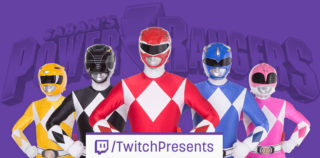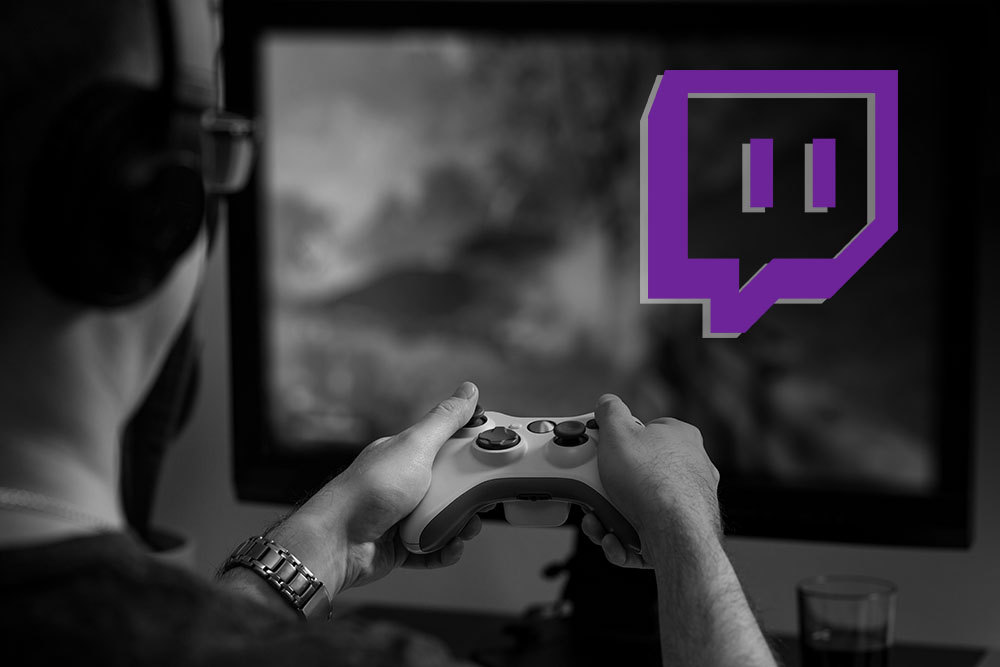These days, there’s not much Twitch doesn’t do. The gaming livestreaming service that was a spinoff of Justin.tv back in June 2011 now hosts its own annual TwitchCon event, allows partnered streamers to earn money by selling PC games and in-game content, and even helps parent company Amazon decide which Hollywood pilots will get the greenlight for Amazon Prime.
That’s a far cry from the early days of 2007, when Justin.tv launched and managed to survive the recession that ended the decade. That’s when video games emerged as a new opportunity for the company in 2010. “Justin (Kan) and I had been researching gaming stuff for a year and we had talked to Blizzard and MLG, but it was too soon,” Kevin Lin, co-founder and COO of Twitch, told AListDaily.
That changed when Blizzard released beta keys of StarCraft II and people started watching YouTube videos by gamers like Sean “Day9” Plott. “We thought, ‘Why don’t people use us?’” said Lin. “So, we started talking to creators and applied their feedback to add commercial breaks, subscriptions, live transcodes and all the things needed to build a platform for gaming.”
It’s that creator-first philosophy that led to the start of the Twitch brand in 2011. Lin said the company didn’t build anything that the creators didn’t say they wanted, and that helped the social video platform to flourish, beating its six-month projections in the first two months. But coming up with the name of the channel was a bit more complicated.
“We spent months wracking our brains trying to find a five- to six-letter word with one syllable,” Lin explained. “We built a crawler to find domains that were available. Twitch muscles came up as a gaming skill that was needed, but that wasn’t in the crawler. After trying to come up with names around ‘game,’ ‘live,’ ‘broadcast’ and ‘stream,’ Twitch stuck out for us and we created a logo around it and everyone just called it Twitch internally. It took three or four months to get that name.”
According to Lin, the core of the Twitch brand as it was built over the last six years is “gamer lifestyle.”
“Twitch is the celebration of our love for games,” he said. “But games only define one piece of who we are. Over time, a lot of streamers were also artists and musicians and IRL became a thing because creators wanted to be able to talk about life philosophies and shoot the breeze. As you see people get together at TwitchCon and people meeting together for the first time or viewers and broadcaster relationships, Twitch is about sharing commonalities. It’s also seen through our team and staff, which have a strong relationship with partners, broadcasters and viewers.”
Since Amazon acquired Twitch in August 2015 for $970 million, the parent company has allowed Twitch to move more boldly into big ideas like commerce. “We wanted to do this for a long time, and game companies had been asking us to do this for a long time, but we had to make sure we had everything ready,” said Lin. “It’s an excellent new revenue stream for streamers.”
Twitch is also working with Amazon Game Studios to help develop new PC games that are being designed for streaming. “It allows us to think about how to build a game that’s not only a Twitch play style of game, but has a great ecosystem on Twitch and allows for promotion and allows different paradigms to grow,” Lin said.
 Since Twitch gamers also listen to music, watch TV shows and read comics, Amazon also opened up a lot of different ways to bring things to the Twitch audience that they’re interested in. “With the Power Rangers marathon, we wanted to know if this content that a lot of our audience has grown up with since 1993 and is fun, campy and has a good message would resonate today,” Lin said. “And sure enough it did. Can a more mainstream-style show work? We’ll continue experimenting with that stuff.”
Since Twitch gamers also listen to music, watch TV shows and read comics, Amazon also opened up a lot of different ways to bring things to the Twitch audience that they’re interested in. “With the Power Rangers marathon, we wanted to know if this content that a lot of our audience has grown up with since 1993 and is fun, campy and has a good message would resonate today,” Lin said. “And sure enough it did. Can a more mainstream-style show work? We’ll continue experimenting with that stuff.”
Experimentation is part of Twitch’s DNA. The company has livestreamed everything from poker to Julia Childs to Bob Ross in recent years. Twitch also launched its own music library, and along the way, it has helped entertainment companies like Netflix promote Stranger Things and HBO market Game of Thrones directly to its active community.
However, Twitch isn’t the only game in town, nor is it the largest community, with giants like YouTube and Facebook also focusing on games.
“The thing that differentiates us is we are our community internally as staff,” Lin said. “We engage with and many of us are creators. We lean on creators to get feedback and ideas on tools they need for promotion and to generate revenue and to connect better with fans and with each other as creators. That helps us build the right projects. We try to build for the broad creator base as much as possible. We have these communities—a word a lot of people use, but we take it very seriously.”
While other companies will build discovery based on a game or event, Lin said Twitch builds discovery around communities that are self-organized and self-identified. “We’re also building a platform to connect a global community and not siloing off regions,” Lin said. “While we’re extending to new categories, but gaming is always core for us. We’re not a broad generalist platform—we started with a smaller group of gamers, grew them to a large group, and then expanded from there.”
Lin said Twitch has opened up different paradigms of developers to integrate as they build new games, including interactive components where the audience can impact the game as well as new ways to engage with the audience socially to connect broadcasting or content creation with rewards for people watching the game.
“We’re seeing a lot of experimentation in mobile development today and we’ll see that in PC as well,” Lin said. “Twitch audience engagement opens up a whole different type of transactional ecosystem. Now, game companies are working on different types of economies that encourage the audience to interact and transact. A new paradigm will happen.”
Amazon is offering new ways for game makers to tap into these evolving trends through its free Lumberyard game engine technology. Breakaway, the four vs. four MOBA, is the first amazon game built for spectating.
“We talk to a lot of game developers about how to build a great game that’s also a great game for Twitch creators and our audience,” Lin said. “We’re doing a lot of testing and experimenting to find out how to build new economics that both players and streamers can participate in this new world of audience interaction and spectating games using Twitch as this great megaphone.”

